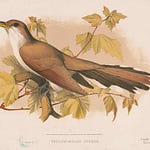Go up to any Scotsman and ask, “Good fellow, who’s your national poet?” And he takes the pipe out of his mouth, eyes you askance, as if you were daft, taps the ashes out of the pipe, and says, “Wha else but Bobby Burns?”
For there used to be such poets in the world, and their songs brought a people together, and such was the author of our Poem of the Week, Robert Burns. He was a well-read man and a loyal Scot, in the days when the elder generation of Scots were still stinging over their humiliation by the English, who had gotten fed up with Scottish uprisings, and had shorn the chieftains of their authority, forbidden the wearing of the kilt, and done their best to suppress the speaking of Gaelic.
Now, Burns didn’t have any romantic notions of turning Scotland back to an independent kingdom under the rulership of some eighteenth-great-grandson of Malcolm Canmore, the man who defeated the wicked Macbeth and became king, marrying the good woman we honor as Saint Margaret of Scotland. And Burns himself was a bit of a rake, too. But when he wrote as he did in Scots English — that’s not Gaelic, which is a cousin of Welsh — it was as if to announce to the world, “We Scots have our music too!” He knew it was easy enough to poke fun at the Scots, poorer than their English neighbors. Their favorite dish, haggis, would make a Parisian waiter blanch. Dr. Johnson enjoyed his trip to the Hebrides, but he was always teasing his Scottish friend, James Boswell, as for instance when he proposed this definition for his dictionary: “OATS: A grain which in England is generally given to horses, but in Scotland supports the people.”
But Burns’ poetry sounds a chord in the souls of men all the world over, because he touches upon experiences we all have, and he is not going to have his head turned by wealth or the flash and glare of worldly power. What is it that makes a man? The gold fringes of his coat? Whether he seasons his food with spices from India? Honesty, integrity, manliness — these you can find in a poor hamlet as well as in the halls of Parliament; and perhaps more and better, too. Explain the sentiments of this week’s poem to Chief Joseph, and he would nod and understand. You wouldn’t have to explain them to Frederick Douglass. He found a copy of Burns’ poetry in a bookshop, and was enthralled — and sure enough, he adopted our poem’s refrain as his own, hammering it home when he spoke before the crowds, that “a man’s a man for a’ that!”
It must have been quite a moment, when the former slave went to Ayr, the town where the poet was born, and met his family, and looked at the monument the Scots had erected to commemorate the place and the man. “In the Monument there is a finely executed marble bust of Burns,” Douglass wrote, “the finest thing of the kind I ever saw. I never before, looking upon it, realised the power of man to make the marble speak. The expression is so fine, and the face is so lit up, as to cause one to forget the form in gazing upon the spirit.”
Enjoy the song, then! And let me give you a couple of glosses right up front. The first two lines mean, “Is there anything in honest poverty that makes a man hang his head?” The answer, of course, is no. “The man’s the gowd” means “the man’s the gold,” that is, what the man’s made of proves his worth. A “coof” is a blockhead. “He maunna fa’” means “he can’t manage to get it to befall him,” that is, he’s never going to get it. To “bear the gree” means to win the prize!
Is there for honest Poverty That hings his head, an’ a’ that? The coward-slave, we pass him by, We dare be poor for a’ that! For a’ that, an’ a’ that, Our toils obscure an’ a’ that, The rank is but the guinea’s stamp, The Man’s the gowd for a’ that. What though on hamely fare we dine, Wear hoddin grey, an’ a that; Gie fools their silks, and knaves their wine; A Man’s a Man for a’ that: For a’ that, and a’ that, Their tinsel show, an’ a’ that; The honest man, tho’ e’er sae poor, Is king o’ men for a’ that. Ye see yon birkie ca’d a lord, Wha struts, an’ stares, an’ a’ that, Tho’ hundreds worship at his word, He’s but a coof for a’ that. For a’ that, an’ a’ that, His ribband, star, an’ a’ that, The man o’ independent mind, He looks an’ laughs at a’ that. A Prince can mak a belted knight, A marquis, duke, an’ a’ that! But an honest man’s aboon his might – Guid faith, he mauna fa’ that! For a’ that, an’ a’ that, Their dignities, an’ a’ that, The pith o’ Sense an’ pride o’ Worth Are higher rank than a’ that. Then let us pray that come it may, As come it will for a’ that, That Sense and Worth, o’er a’ the earth Shall bear the gree an’ a’ that. For a’ that, an’ a’ that, It’s comin yet for a’ that, That Man to Man the warld o’er Shall brithers be for a’ that.















Share this post